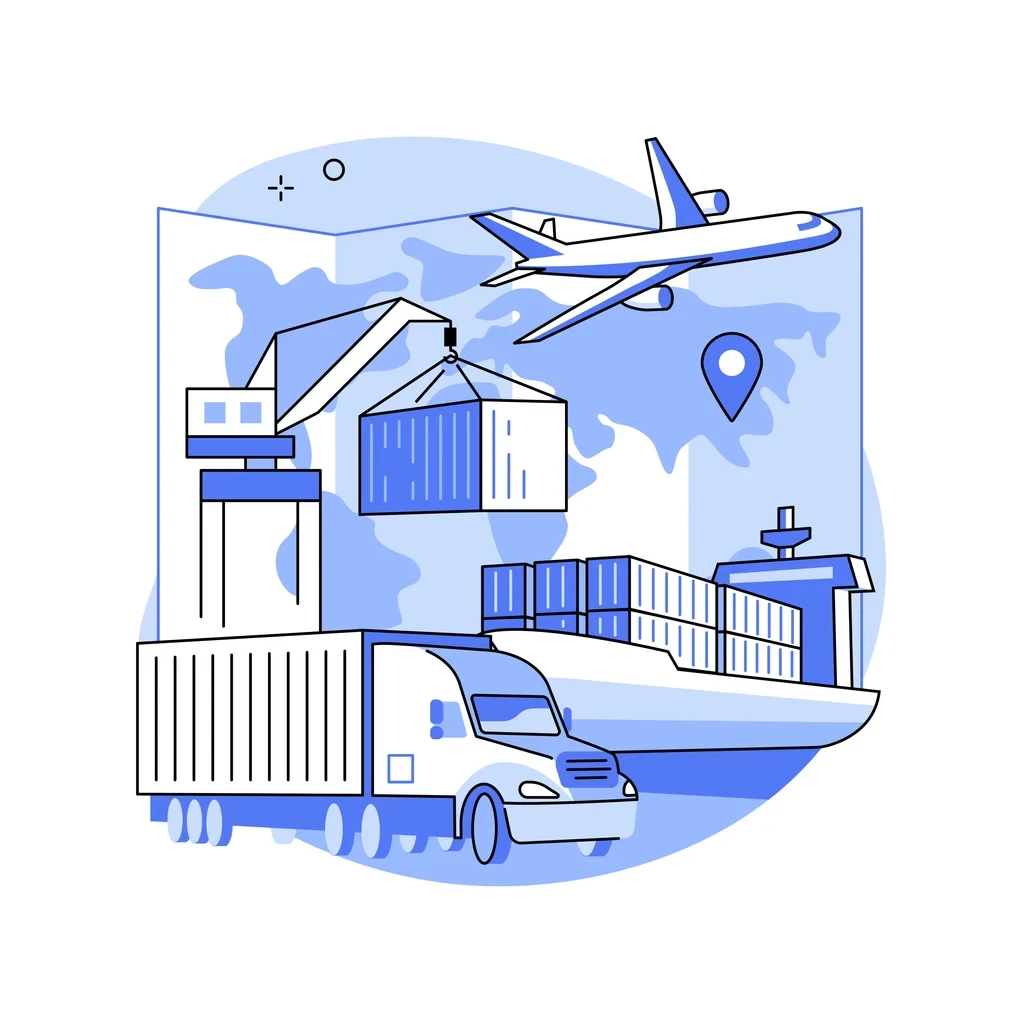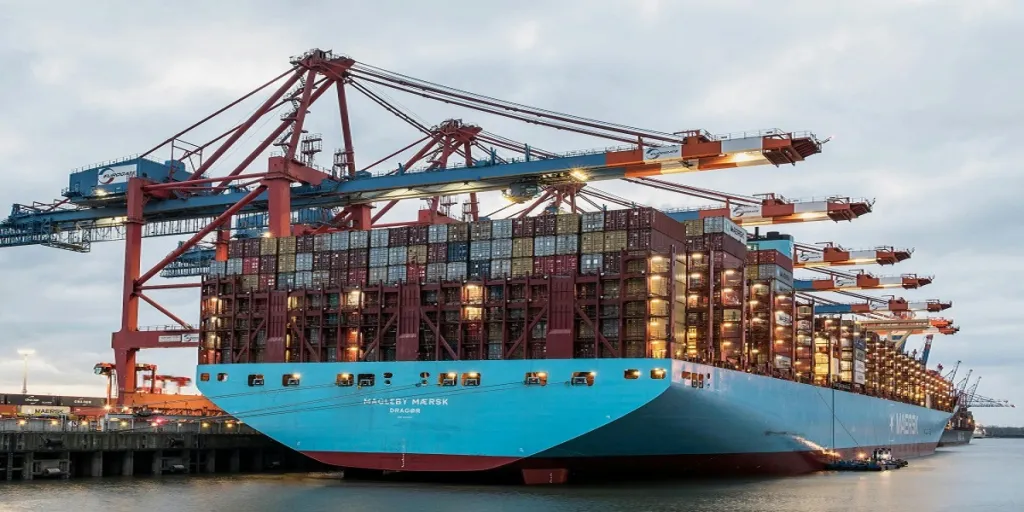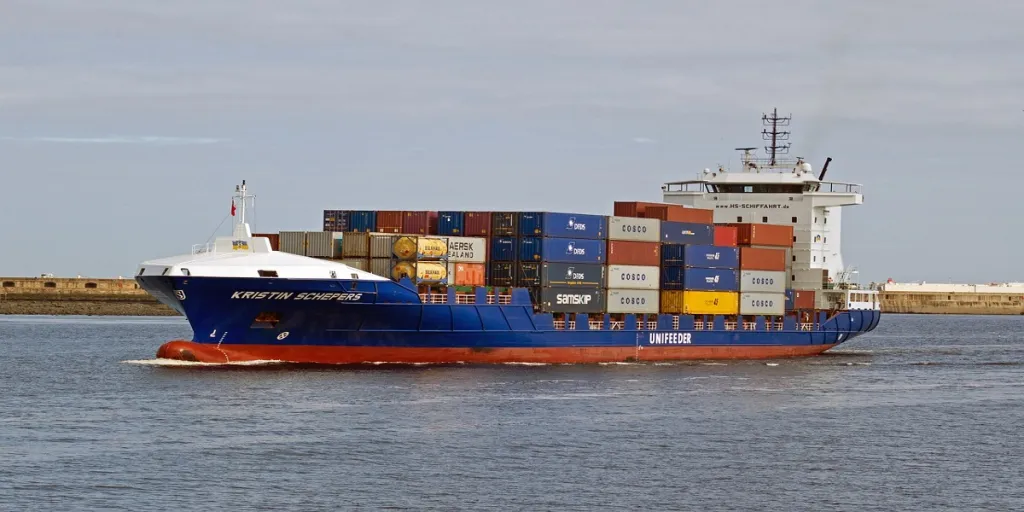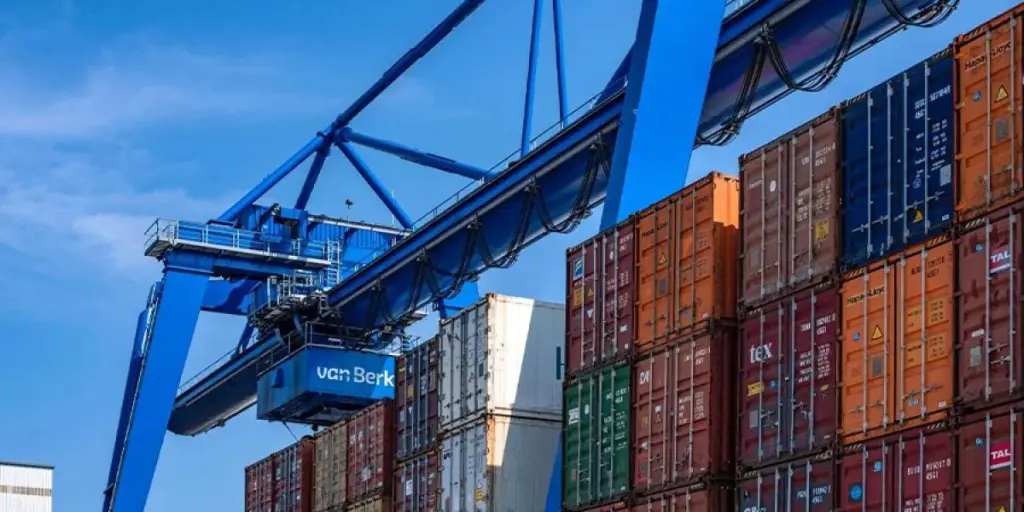A typical day for eCommerce businesses is a bit like a juggling act! They start their day overseeing top-priority tasks like product development and planning marketing campaigns when out of the blue, a wave of orders rolls in.
Now, think about what happens mid-day. Business managers are suddenly buried under a mountain of tasks, ensuring that every one of those orders has the right products heading to the right customers—and at the right time, too.
To make matters even more challenging, they are dealing with a bunch of different suppliers and figuring out how to ship all these goods without spending a fortune. Does that sound familiar?
In the face of such challenges, more and more eCommerce businesses are turning to outsource their logistics management. It’s a strategic move for businesses that want to focus on their core competencies – whether that’s creating innovative products, perfecting marketing strategies, or improving customer relationships.
But when it comes to outsourcing, businesses typically choose between two key options: third-party logistics (3PL) or fourth-party logistics (4PL). But what exactly is 3PL and 4PL? What’s the difference between the two? And which one should businesses choose? Keep reading to find out more about 3PL and 4PL, their pros and cons, and a handy checklist at the end of the article to help businesses make the right decision!
Table of Contents
What is a 3PL?
What is a 4PL?
3PL vs 4PL: what are the main differences?
3PL vs 4PL: which one is right for my business needs?
Implement a 3PL model with Alibaba.com Logistics Marketplace
What is a 3PL?
Third-party logistics, often abbreviated as 3PL, refers to independent firms that specialize in providing outsourced logistics services. Instead of managing logistics operations internally, companies choose these third-party providers to ensure the efficient movement of goods from one location to another, all the way to the end customers.
3PL providers typically have a vast transportation network but interestingly, many do not own the physical means of transport. They usually collaborate with freight forwarders and various transport companies to ensure the delivery of goods is completed in a timely and efficient manner.
3PL providers offer a wide range of customized logistics services including:
- Shipping and receiving of inventory
- Picking, sorting, and packaging
- Inventory management
- Order fulfillment
- Transportation to end customers
What are the advantages of using a 3PL?
Using a 3PL allows businesses to spend less time and resources on logistics tasks like warehousing, giving them more room to concentrate on their main services. Now, let’s explore the three ways a 3PL can benefit e-commerce businesses:
Scalability
A significant advantage of choosing a 3PL provider is the inherent scalability it provides. They allow businesses the flexibility to scale operations up or down based on their current demand. Unlike in-house logistics, where managing fluctuating business needs can be challenging, there’s no need to worry about infrastructure expansion with a 3PL provider.
Reduced overhead costs
Another area where a 3PL provider can prove invaluable is its potential for significant cost reductions. Because 3PL providers already have their own logistical staff and transportation assets, a business using a 3PL provider won’t need to maintain as many of these aspects in-house.
Inventory management
3PL providers offer advanced inventory management solutions that can guarantee efficient tracking of goods in real time. This efficiency makes auditing inventory easier because it improves the accuracy of inventory records and can help reduce loss. Real-time, accurate tracking also ensures goods can be quickly located when necessary.
What are the drawbacks of using a 3PL?
While 3PL providers allow businesses to scale their operations up and down, it’s important to be aware of their limitations. From unexpected costs that can nibble at profit margins, to possible restrictions on scalability, these drawbacks are crucial to explore. Let’s take a look at them below.
Less control
One primary concern with employing a 3PL provider is the loss of control. When businesses outsource their warehousing, shipping, and order fulfillment processes, they might lose some direct oversight. Though the provider handles these tasks, companies may still want to keep a close watch on these essential parts of their business operation.
Hidden costs
While a 3PL provider can reduce certain expenses, they may bring about additional costs. These costs can include fees for annual contract renewals, service set-up, and fluctuating freight costs. It’s critical to fully understand these supplementary costs to get a clear picture of the financial implications of hiring a 3PL.
Limited scaling capacity
Businesses should be aware that a 3PL might have limited scaling capacity. There may be a lack of resources or capability to quickly upscale with surges in order volumes or when a business wants to expand to international markets. This limitation can potentially hinder a company’s growth and expansion plans.
What is a 4PL?
A fourth-party logistics provider, otherwise known as a 4PL, goes beyond the standard duties of traditional logistics partners. Rather than merely overseeing the physical transit of goods, a 4PL strategically orchestrates and monitors the entirety of the supply chain.
4PLs, also referred to as lead logistics providers (LLPs), do not limit their services to merely handling shipping, receiving, and storage processes. These providers take a step beyond and frame strategic plans. For instance, should a business wish to penetrate new international markets, a 4PL would strategically devise a plan to store the inventory in locations nearest to these markets.
Besides the usual 3PL services, a 4PL’s role includes:
- Supply chain consulting
- Logistics strategy development
- Management of supplier relationships
- Inventory planning
- Data analytics
- Technology integration
What are the advantages of using a 4PL?
Using a 4PL as an all-in-one logistics service provider saves businesses time and resources by eliminating the need to coordinate with multiple vendors. Here are four key benefits that businesses gain when partnering with a 4PL:
Single point of contact
With a 4PL, businesses have one central partner, even if their supply chain operations involve multiple locations or frequent shipping between them. This single interface leads to seamless communication and management, eliminating the need to juggle multiple providers.
Strategic insight
Another benefit offered by 4PL providers is their strategic expertise. They generally provide advanced analytics and reporting, equipping businesses with valuable data. This information can inform businesses on the best channels and practices for their operations, enabling data-driven decisions rather than relying more on intuition or guesswork.
Access to advanced technologies
4PLs incorporate advanced technologies such as artificial intelligence (AI) and machine learning into their logistics services. These technical solutions optimize aspects like inventory management, production orders, and manufacturing processes, resulting in more efficient and cost-effective operations.
Increased visibility
Finally, 4PLs significantly enhance visibility and transparency in the supply chain. With real-time tracking, businesses can monitor their goods at every stage of the process, ensuring that their logistics operations are streamlined and responsive to any potential issues or delays.
What are the drawbacks of using a 4PL?
While 4PL providers have much to offer, they can also come at a significant cost and potentially increase vulnerability due to heavy dependence on them for all logistics needs. Here are three of the most common limitations when using a 4PL:
Higher costs
Using a 4PL provider can be costly, especially for SME businesses. A 4PL offers a wide range of services and seamless integration, which does come with a premium price. Smaller businesses might find these costs excessive, particularly if they lack a large budget for logistics management.
Dependency
The second challenge is increased dependency. When businesses hand over control of their entire supply chain to a single entity, it can be challenging if the service is suddenly withdrawn or if the partnership ends unexpectedly. Businesses might struggle to regain control quickly or experience operational hiccups due to this high dependency.
Possible over-complication
4PL providers offer a broad and comprehensive approach to logistics, but this detailed service might be more than what’s needed, especially for smaller businesses that have a simple supply chain structure. The complexity that a 4PL brings could turn into an unnecessary hindrance instead of a benefit.
3PL vs 4PL: what are the main differences?
Third-party logistics providers focus on day-to-day operations, delivering operational logistics services like warehousing, transportation, and distribution. In contrast, fourth-party logistics providers offer strategic and integrative services, overseeing the entire supply chain including coordination with 3PL providers.
With their broader scope, 4PLs provide end-to-end supply chain solutions that surpass those offered by 3PLs. The following is a comparative table for a concise overview of the main differences between 3PLs and 4PLs:
| Aspect | 3PL | 4PL |
| Services provided | Operational services such as storage, transportation, and packaging. | Strategic services, managing all aspects of the supply chain. |
| Cost and pricing models | Generally affordable for SME businesses, often with pay-per-service pricing models. | More costly due to comprehensive services, and usually employs a management fee or gain-share model. |
| Scalability | Suitable for steady growth, but may require multiple providers for scalability. | Manages large, complex supply chains, enabling scalability to global markets. |
| Control over operations | Businesses retain more control over their core logistics operations. | Businesses have less operational control, handing over end-to-end supply chain management. |
| Technological capabilities | While they may integrate some technology, like warehouse management systems (WMS), their technology integration is typically less advanced. | Often provides advanced technology, extensive data analytics, and AI capabilities. |
3PL vs 4PL: which one is right for my business needs?
When it comes to choosing between 3PL and 4PL, there are a lot of factors to consider. Here are some key questions that will help businesses decide what’s right for their supply chain needs.
- How many suppliers do you have and where are they located?
- If businesses have multiple suppliers, especially overseas, coordinating logistics can become complex. 4PLs are better equipped to manage these complexities.
- Do you use multiple fulfillment channels (online/offline marketplaces, self-operated websites, or physical stores)?
- If businesses have various fulfillment channels, dealing with the associated complexities can be challenging. 4PL providers excel in these situations due to their end-to-end supply chain management abilities.
- Are you expecting substantial business growth soon?
- If small or mid-sized businesses expect rapid growth, choosing a 4PL can provide seamless scalability. 3PLs can handle steady growth but might require adding multiple providers.
- To what extent do you want control over your logistics operations?
- If businesses prefer more operational control, a 3PL might be suitable. If they are open to relinquishing control for more comprehensive management, they should consider a 4PL.
- Do you need to establish direct relationships with carriers?
- If direct relationships with carriers are important for their logistics operations or cost control, businesses should consider partnering up with a 3PL provider.
- Does your business require specialty services like custom packaging or specialized handling?
- If a business requires specific services such as custom packaging, labeling, or other specialized handling, a 3PL might be more advantageous as they often have expertise in these areas.
- Are you looking for strategic insights beyond merely operational task management?
- If businesses are seeking strategic insights and advanced analytics to optimize their supply chain and improve logistics efficiency, a 4PL provider is typically the better choice.
- What are the cost considerations and budget constraints for your business?
- 3PLs generally operate on a pay-per-service model, making them a more cost-effective choice for SME businesses operating on a tight budget.
Implement a 3PL model with Alibaba.com Logistics Marketplace
In conclusion, while 4PL providers offer a more comprehensive level of strategic management, often seamlessly integrating the whole supply operations, it might be a daunting and potentially expensive option for SME businesses to hand over total control of their logistical operations.
Instead, a preferable strategy for these businesses might be to initially outsource their logistics operations partially to a 3PL provider, beginning with activities such as storage and shipping. Eventually, as they build up their experience and confidence, and as their business grows incrementally, they could consider transitioning to a 4PL provider that can manage their entire supply chain.
But where can businesses find reliable 3PL providers to kickstart this process? One practical solution is Alibaba.com’s Logistics Marketplace, which offers a broad range of services from over 100 logistics providers. From door-to-door deliveries with real-time tracking to large-scale port-to-port logistics, and specialized services such as warehousing solutions and customs clearance, businesses are not short of options.
Committed to transparency and oversight, Alibaba.com’s Logistics Marketplace provides businesses with clear visibility of their shipments throughout the entire supply chain journey. With shipping services extending from mainland China to a network of 38 countries, it’s the ultimate all-in-one marketplace for outsourcing logistics operations.
Check out how to use Alibaba.com’s Logistics Marketplace to unlock the world of hassle-free, seamless logistics operations!

Looking for a logistics solution with competitive pricing, full visibility, and readily accessible customer support? Check out the Alibaba.com Logistics Marketplace today.




